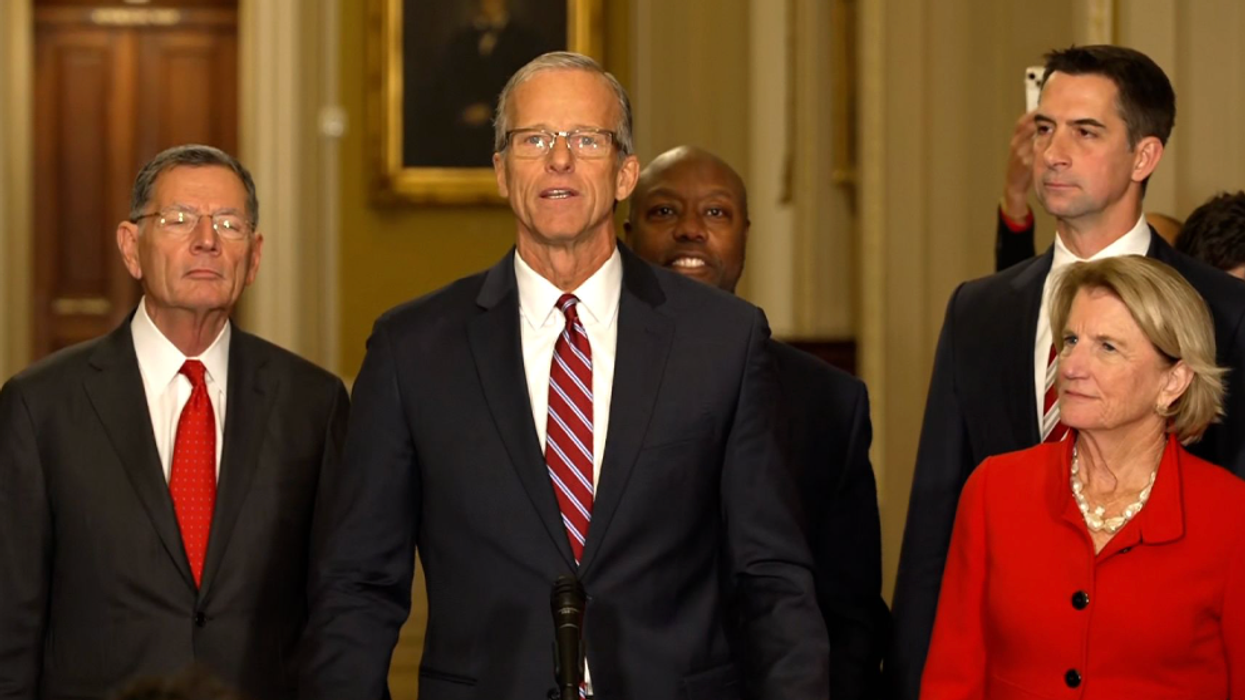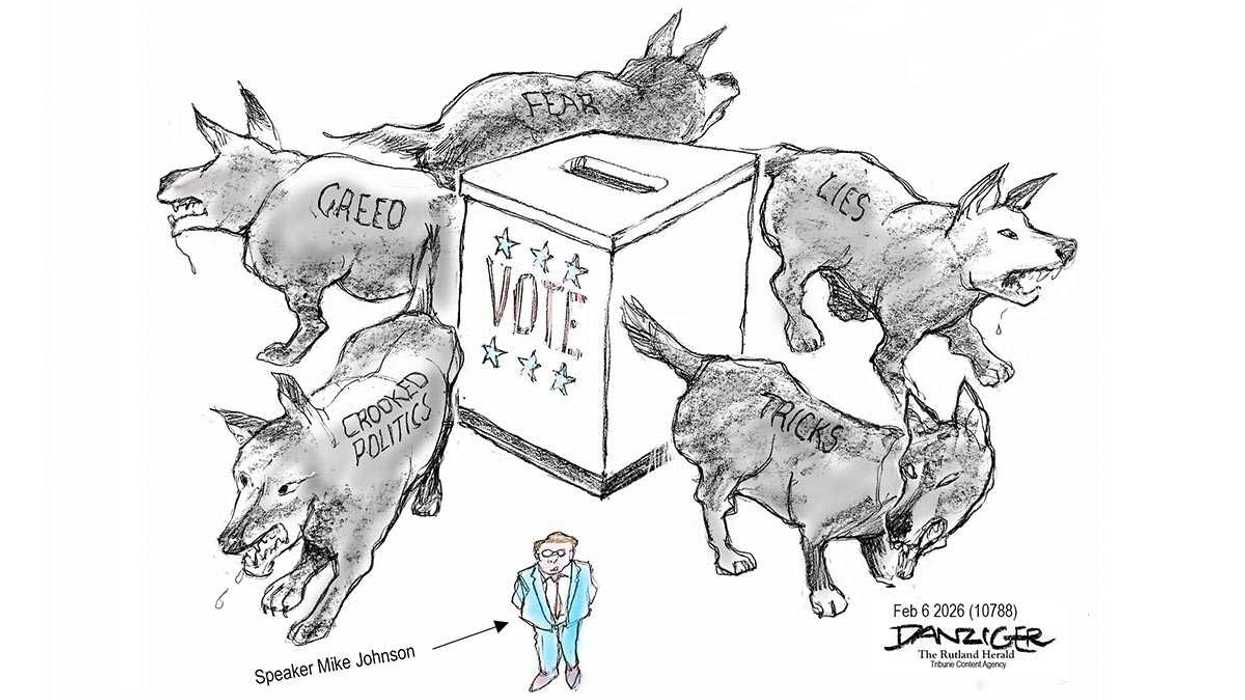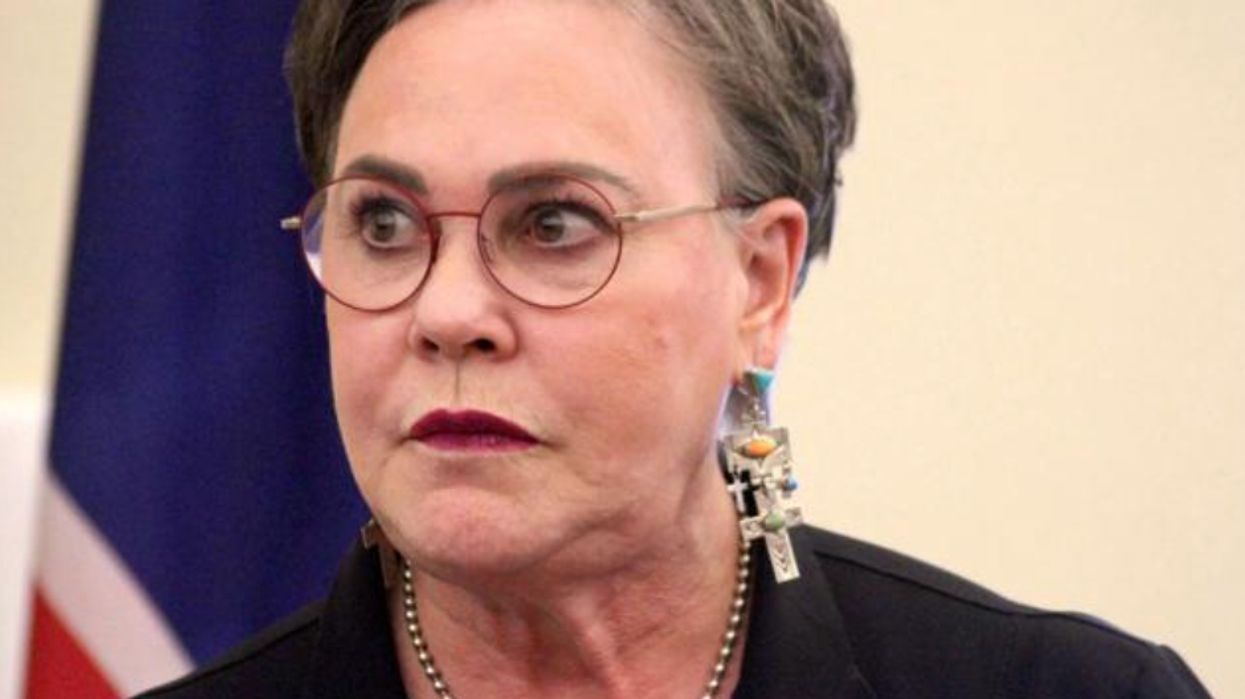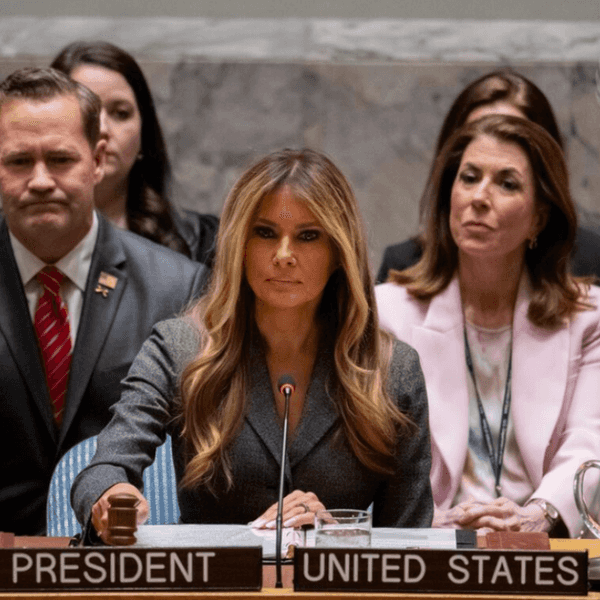Protecting Their Majority, Republicans Back Scandal-Ridden Rep. Gonzales
Republicans are rallying around a fellow GOP lawmaker who had an inappropriate sexual relationship with a staffer who later died by suicide.
Yes, multiple Republicans either refused to call for Rep. Tony Gonzales of Texas to resign or flat out admitted that he should stay in Congress because kicking him out would hurt their chances at keeping their narrow majority.
They said this even after text messages were made public, showing Gonzales pressuring aide Regina Ann Santos-Aviles—who later died by self-immolation—to send him sexual photos of herself and asking if she liked "anal," even after she pushed back and said that he was going "too far."
Gonzales’ fellow Texas Republican,Rep. Troy Nehls (R-TX), told CNN that resigning would be “the stupidest thing he could ever do” because "if he does that, then you gotta give the gavel to Hakeem Jeffries, and I'm sure the Democrats would love that."
Of course, that is not the case. Republicans would still hold a 217-214 majority. But it would be hard, if not impossible, to pass legislation given that GOP Rep. Thomas Massie of Kentucky often votes against must-pass Republican legislation.
A number of other Republicans made similar comments to MS NOW, but like the cowards they all are, they refused to put their names behind such a disgusting admission.“They can’t lose a single vote, and so members almost seem untouchable right now,” an unnamed House Republican told the outlet.
“It’s a game of numbers and we’re in a losing battle,” another unnamed House Republican said. “Anyone who is remotely considering leaving right now would be able to use that as an incredible bargaining chip.”
And a third unnamed House Republican told MS-NOW that, while the allegations against Gonzales are "a really ugly situation,” Republicans can't "afford" to hold him accountable until the "numbers get better."
Gross is an understatement.Other cowardly Republicans refused to comment publicly on what they think Gonzales should do.
“I’m not going to get ahead of the speaker on this," Rep. Richard Hudson (R_NC), chair of the National Republican Congressional Committee, told Punchbowl News. "The speaker said publicly that Tony needs to respond to the allegations."
And John Cornyn, the Republican senior senator from Texas, also refused to call on Gonzales to resign.
"I’ve got my own race to run. I’ll let the speaker deal with that," he told Semafor reporter Burgess Everett, referring to his uphill primary battle against Texas Attorney General Ken Paxton.
To be sure, there are some Republicans calling on Gonzales to resign—most of them women who say that Gonzales’ behavior is disgusting and unacceptable.But the most important House Republican of them all—Speaker Mike Johnson—said that Gonzales deserves due process and therefore shouldn't step down.
Of course, as long as the text messages are legitimate, there’s no doubt that what Gonzales did violated House ethics rules, which clearly state that members of Congress are barred from having sexual relationships with aides.
"Send me a sexy pic,” Gonzales texted Santos-Aviles, who died by suicide after reports said that she had been sidelined by staff due to her sexual relationship with their boss.
“You don't really want a hot picture of me,” she responded.
"Yes I do,” Gonzales said. "Hurry."
Santos-Avile’s response made it clear that she was trying to shut down his advances.
“No, I just don't like taking pictures of myself,” she said.
What Gonzales did is despicable. But Republicans won't punish him, just as they won’t punish President Donald Trump, who has been credibly accused of sexual assault by multiple women.












